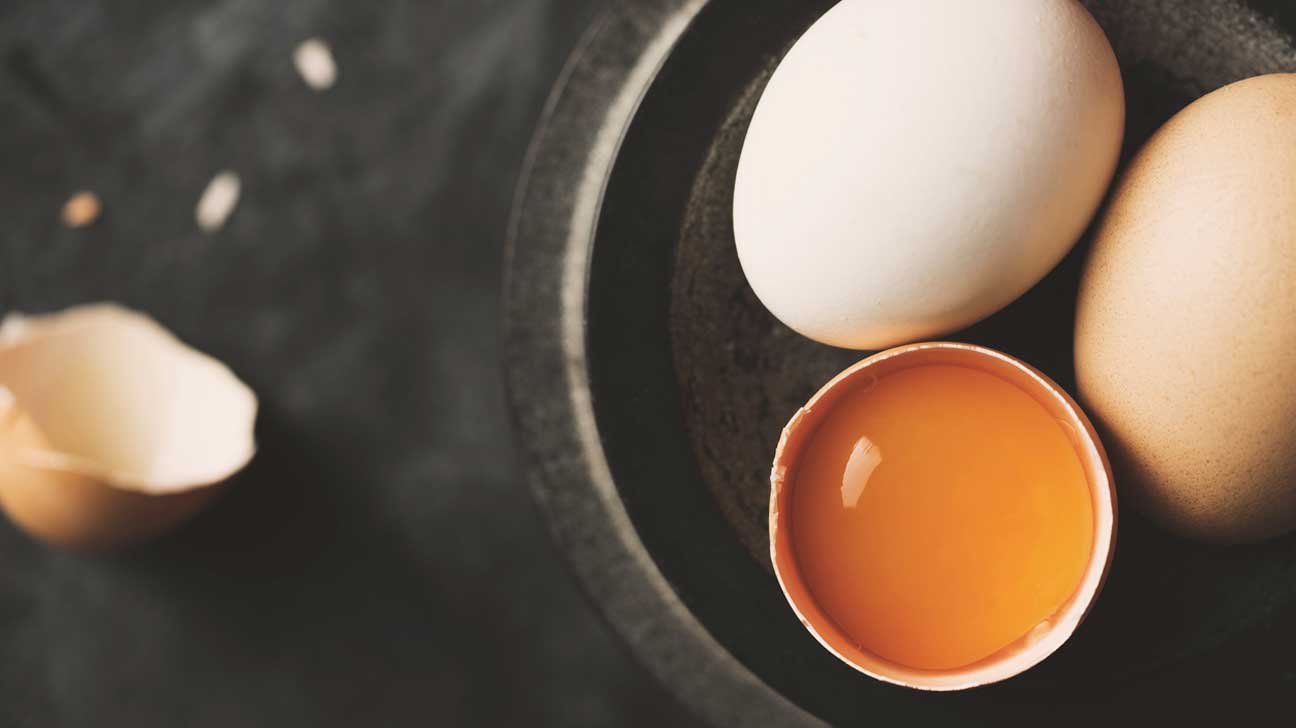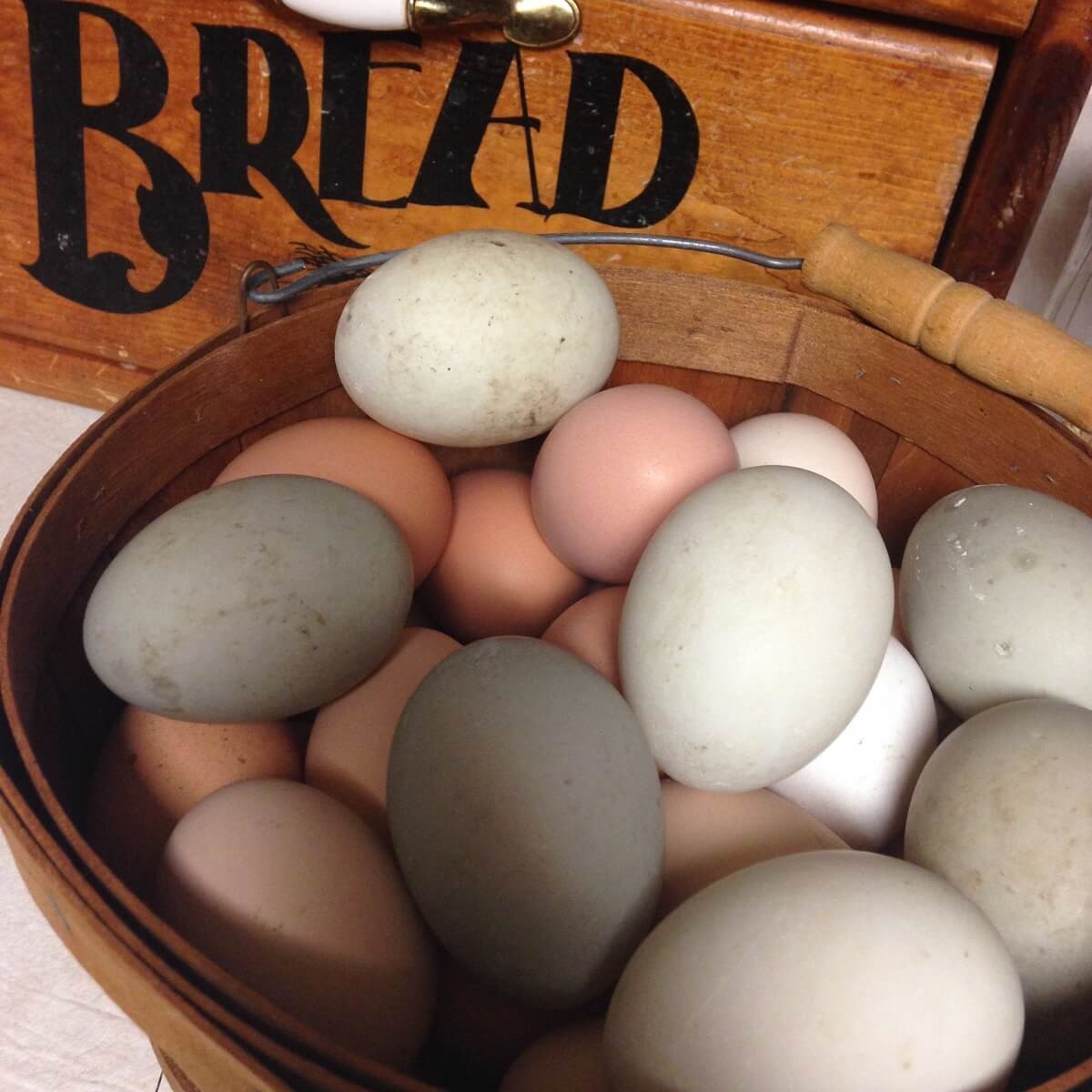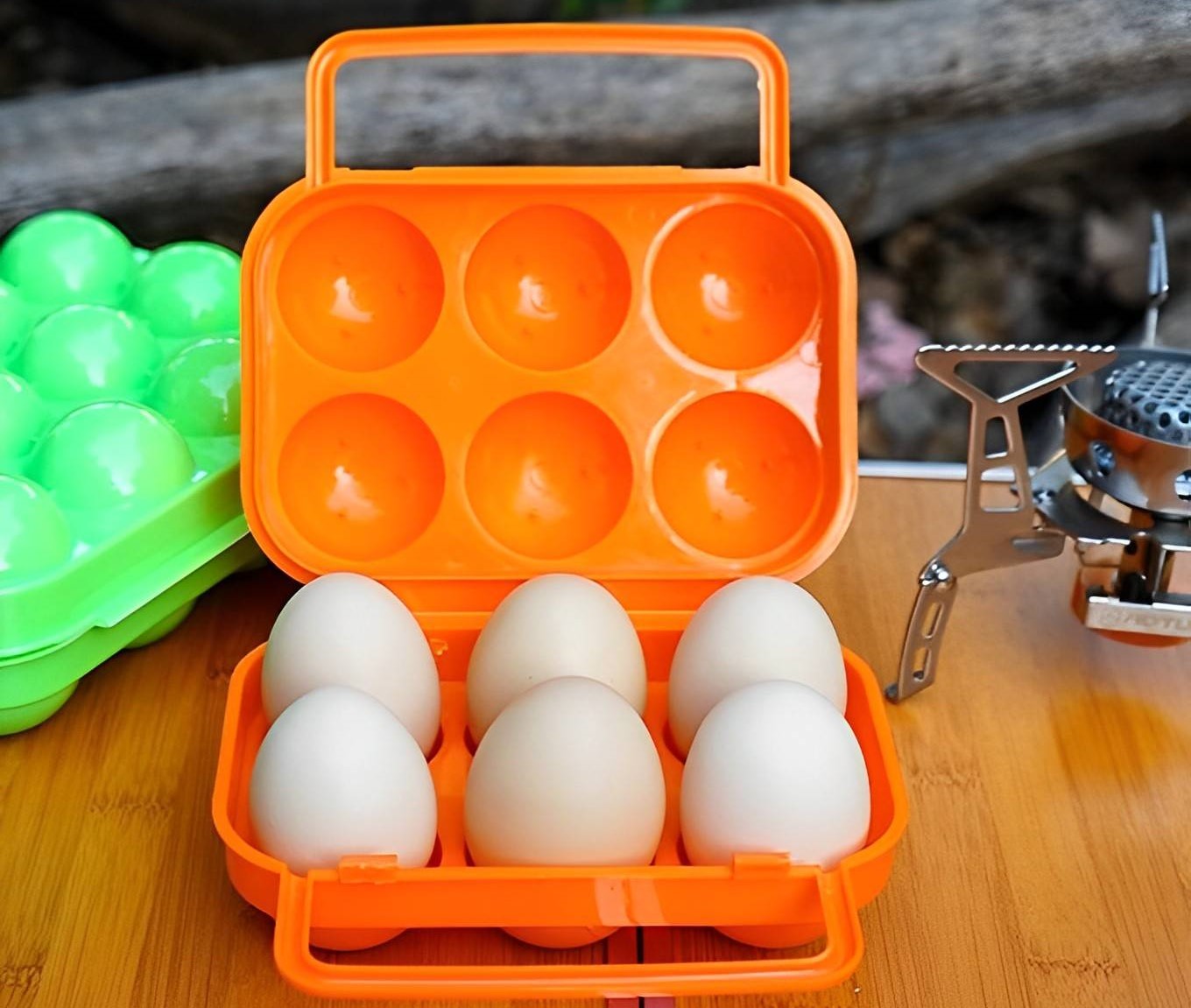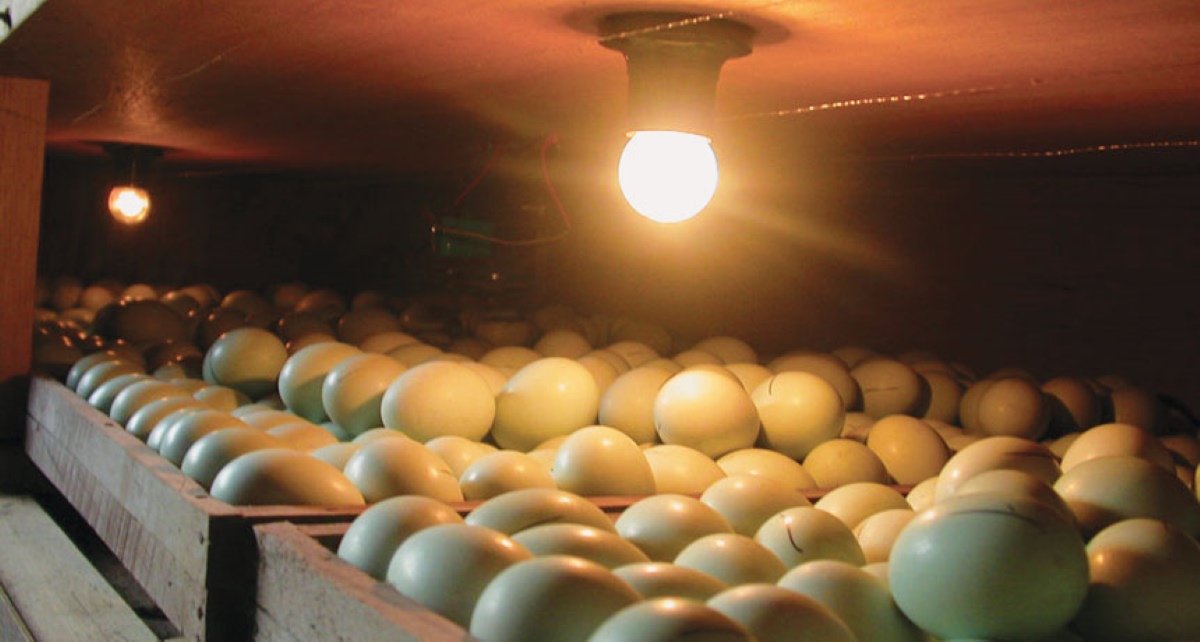

Articles
How To Store Fresh Eggs?
Modified: February 18, 2024
Learn how to store fresh eggs in this informative articles. Keep your eggs fresh and extend their shelf life with these helpful tips.
(Many of the links in this article redirect to a specific reviewed product. Your purchase of these products through affiliate links helps to generate commission for Storables.com, at no extra cost. Learn more)
Introduction
When it comes to storing fresh eggs, it’s important to know the proper techniques to ensure their freshness and safety. Eggs are a versatile and nutritious food, but mishandling or improper storage can lead to spoilage and potential health risks.
Whether you have your own backyard chickens or purchase eggs from the store, understanding how to store them correctly is crucial. In this article, we’ll explore the best practices for storing fresh eggs, including the ideal temperature, cleaning methods, and the choice between refrigeration and room temperature storage.
Proper storage not only helps preserve the quality of the eggs but also extends their shelf life. So, let’s dive in and learn the secrets of storing fresh eggs to ensure that they stay fresh, delicious, and safe to consume.
Key Takeaways:
- Proper egg storage temperature is crucial for maintaining freshness and safety. Keep eggs at 35-40°F to slow bacterial growth and avoid freezing to preserve quality.
- Whether refrigerated or stored at room temperature, proper handling and cleanliness are essential for extending the shelf life of fresh eggs. Follow guidelines to ensure optimal freshness and safety.
Read more: How To Store Fresh Eggs
Proper Egg Storage Temperature
The temperature at which you store your fresh eggs plays a vital role in their quality and safety. To maintain their freshness, eggs require a consistent and cool temperature. The recommended storage temperature for eggs is between 35 to 40 degrees Fahrenheit (1.6 to 4.4 degrees Celsius).
At this temperature range, the eggs are kept in a state of suspended animation, slowing down the growth of bacteria and maintaining their freshness for a longer period. It is important to note that fluctuations in temperature can accelerate spoilage, so it’s best to avoid storing eggs in places where temperatures fluctuate drastically, such as in the refrigerator door.
While it’s crucial to maintain a cool temperature, it’s important to avoid freezing eggs. Freezing eggs can lead to changes in their texture, causing the membranes to rupture and resulting in a loss of quality. If you accidentally freeze your eggs, it’s best to use them for baking or cooking rather than consuming them as fried or scrambled eggs.
So, remember to store your fresh eggs at a consistent temperature between 35 to 40 degrees Fahrenheit to ensure their optimal freshness and quality.
Cleaning the Eggs
Before storing fresh eggs, it’s important to ensure that they are clean. However, it’s essential to handle eggs with care during the cleaning process, as they have a protective layer called the “bloom” or “cuticle” that helps seal the pores of the eggshell and reduce the risk of contamination.
If your eggs are soiled with dirt or debris, you can gently clean them using a dry cloth or a soft brush. Avoid using water unless absolutely necessary, as it can remove the natural protective coating. If you do need to use water, make sure it is warm and not hot, and quickly dry the eggs afterward.
It’s important never to wash eggs using detergents, soaps, or any strong disinfectants. These can penetrate the eggshell and affect the quality of the egg, as well as potentially taint the taste. Instead, gentle cleaning with a dry cloth or brushing off any dirt is sufficient.
If you have your own backyard chickens and find that some of the eggs have chicken droppings on them, it’s best to discard those eggs rather than attempting to clean them. Consuming eggs with fecal contamination can pose health risks, and it’s better to prioritize safety.
Cleaning eggs before storing them helps remove any visible dirt or debris, ensuring that they remain hygienic throughout their storage.
Refrigeration vs. Room Temperature Storage
One of the decisions you’ll need to make when it comes to storing fresh eggs is whether to refrigerate them or store them at room temperature. Both methods have their advantages and considerations, so let’s explore the differences.
Refrigeration: Storing eggs in the refrigerator is the most common method used in many households. Refrigeration helps maintain a stable and cool temperature, which slows down the growth of bacteria and extends the shelf life of the eggs. It also reduces the risk of spoilage. However, refrigeration can cause the eggs to absorb odors from other foods, so it’s essential to store them in airtight containers or keep them in their original cartons to protect them from absorbing unwanted smells.
Room Temperature Storage: In some parts of the world, it is common to store eggs at room temperature. The room temperature should be consistently cool, preferably between 50 to 70 degrees Fahrenheit (10 to 21 degrees Celsius). Storing eggs at room temperature allows for easy access, as you don’t need to wait for them to come to room temperature before cooking. However, this method requires more attention to ensure the eggs are used within a reasonable time frame to avoid spoilage or the risk of bacterial contamination.
Deciding between refrigeration and room temperature storage ultimately depends on personal preference, cultural practices, and the availability of space in your kitchen. Regardless of the method you choose, it’s crucial to handle and store the eggs properly to maintain their freshness and safety.
Next, we’ll dive into the specifics of storing eggs in the refrigerator and at room temperature.
Storing Eggs in the Refrigerator
If you choose to store your fresh eggs in the refrigerator, follow these guidelines for optimal storage:
- Select a clean and dry container: Use a clean and dry container, such as an egg carton or an airtight container, to store the eggs. This helps protect them from absorbing odors and prevents moisture loss.
- Place the eggs in the main body of the refrigerator: Store the eggs in the main body of the refrigerator, rather than the door. The temperature in the door fluctuates more, which can affect the quality and freshness of the eggs.
- Keep the eggs away from strongly scented foods: Eggs have a porous shell, which means they can absorb odors from other foods. To prevent this, keep the eggs away from strongly scented ingredients, such as onions or garlic.
- Keep the eggs in their original carton: If you purchased your eggs in a carton, it’s best to leave them in their original packaging. The carton provides an additional layer of protection and helps keep the eggs organized.
- Label the date of storage: If you’re unsure about the freshness of the eggs, it’s helpful to label the carton with the date of storage. This way, you can keep track of how long the eggs have been in the fridge.
By following these steps, you can ensure that your eggs stay fresh and protected in the refrigerator. Remember to always check for any signs of spoilage or any strange odors before using the eggs.
Read more: How To Store Farm Fresh Eggs
Storing Eggs at Room Temperature
If you prefer to store your fresh eggs at room temperature, here are some guidelines to follow:
- Find a cool spot: Choose a cool area in your kitchen to store the eggs. The temperature should be between 50 to 70 degrees Fahrenheit (10 to 21 degrees Celsius). Avoid placing the eggs near sources of heat such as stoves or direct sunlight, as this can hasten spoilage.
- Use a dedicated container: Designate a specific container for storing the eggs at room temperature. It can be a basket or an egg holder with enough airflow to prevent condensation. This helps to keep the eggs organized and prevents them from rolling off the counter.
- Rotate the eggs: To ensure even freshness, periodically rotate the eggs in the container. This prevents one side of the egg from being pressed against the surface for an extended period, which can lead to flattening the air cell inside.
- Keep an eye on freshness: Unlike refrigerated eggs, room temperature eggs have a shorter shelf life. It’s important to check the eggs regularly for any signs of spoilage, such as an off odor or unusual color, and discard any that are no longer fresh.
Storing eggs at room temperature offers the convenience of easy access and eliminates the need to wait for them to come to room temperature before cooking. However, it’s crucial to be diligent in using them within a reasonable time frame to maintain their freshness and reduce the risk of bacterial contamination.
Remember to practice good hygiene and handle the eggs carefully when storing at room temperature. Keeping them in a cool spot away from heat sources and checking for signs of spoilage will help ensure the eggs remain safe and delicious.
Store fresh eggs in the refrigerator, ideally in the original carton to protect them from absorbing strong odors. Keep them in the main body of the fridge, not the door, for a consistent temperature.
Tips for Extending Freshness
If you want to maximize the freshness of your eggs, here are some helpful tips:
- Store eggs with the pointed end down: The air cell is located at the rounded end of the egg, and storing them with the pointed end down helps keep the air cell at the top, minimizing any potential contact between the yolk and air.
- Avoid washing eggs until ready to use: The natural protective coating on the eggshell helps maintain freshness. Only wash eggs right before using them to avoid compromising that protective layer.
- Use older eggs for hard-boiling: If you plan to hard-boil eggs, it’s recommended to use eggs that are a bit older. Fresh eggs can be more difficult to peel, while slightly older eggs are easier to work with.
- Use eggs within the expiration date: Pay attention to the expiration or “best before” date on the carton. Using eggs within the recommended time frame ensures better quality and reduces the risk of consuming spoiled eggs.
- Keep eggs away from strong odors: Eggs have a tendency to absorb strong smells, so it’s best to store them away from aromatic foods like onions, garlic, or strong spices, which can impact their taste and quality.
- Avoid extreme temperature changes: Rapid temperature changes can cause condensation on the eggshell, which may accelerate microbial growth and spoilage. Try to avoid fluctuating temperatures to maintain the freshness of the eggs.
By following these tips, you can help extend the freshness of your eggs and ensure that they remain delicious and safe to consume.
How to Tell If an Egg is Fresh
Determining the freshness of an egg is essential to ensure its quality and safety. Here are some methods to help you determine if an egg is fresh:
- Check the expiration date: Start by checking the expiration or “best before” date on the carton. This gives you a general idea of the freshness of the eggs.
- Perform the float test: Fill a bowl with water and gently place the egg in. If the egg sinks to the bottom and lies flat, it is fresh. If it stands upright on the bottom, it is still safe to eat but not as fresh. However, if the egg floats to the surface, it is no longer fresh and should be discarded.
- Observe the appearance: Take a close look at the egg’s shell. Fresh eggs have a clean, smooth, and uncracked shell. Avoid consuming eggs with cracks or any signs of damage, as they can lead to bacterial contamination.
- Smell the egg: Give the egg a quick sniff. A fresh egg should not have any strong or unpleasant odors. If you detect a foul or sulfurous smell, it is likely spoiled and should not be consumed.
- Perform a candle test: Hold the egg up to a bright light source, such as a flashlight or a candle flame, and examine the interior. A fresh egg will have a clear and distinct air cell, a thick and defined albumen (egg white), and a compact and centered yolk.
It’s important to remember that these methods can provide a general indication of freshness, but they are not foolproof. If you have any doubts about the freshness or safety of an egg, it’s best to err on the side of caution and discard it.
By using these methods, you can confidently determine the freshness of your eggs and ensure that you’re using them at their peak quality.
Using Older Eggs
While we typically prefer using fresh eggs for most culinary preparations, there are instances where older eggs can be just as useful and delicious. Here are some ways to make the most of older eggs:
- Hard-boil for easy peeling: As eggs age, the air cell in the eggshell enlarges, making them easier to peel after boiling. Older eggs are less likely to stick to the shell, resulting in perfectly peeled hard-boiled eggs.
- Baking and desserts: Older eggs are ideal for baking purposes. They have a more relaxed protein structure, which can contribute to a tender crumb and improved texture in cakes, cookies, and other baked goods. You can also use older eggs for custards, puddings, and other dessert recipes.
- Egg-based sauces and fillings: In recipes that require cooked eggs, such as hollandaise sauce or custard fillings, older eggs can work well. Their looser proteins can help create smoother and silkier textures.
- Scrambled eggs: Older eggs are excellent for making fluffy and tender scrambled eggs. The loosened proteins create a lighter texture, resulting in a more delicate and enjoyable breakfast dish.
- Pickling: If you prefer pickled eggs, using older eggs is a good choice. The larger air cell can make it easier for the pickling brine to penetrate and flavor the eggs.
It’s important to note that while older eggs can still be used for these purposes, it’s crucial to check their freshness and quality before using them. Always check for any signs of spoilage such as a foul odor or unusual appearance, and discard any eggs that appear off or have passed their expiration date.
By utilizing older eggs strategically in your cooking and baking, you can make the most of their unique qualities and create delicious dishes and treats.
Read more: How To Store Fresh Laid Eggs
Proper Handling and Safety Precautions
To ensure the safety and maintain the quality of eggs, it’s essential to follow proper handling and safety precautions. Here are some guidelines to keep in mind:
- Wash your hands: Before and after handling eggs, make sure to wash your hands thoroughly with soap and warm water. This helps minimize the risk of cross-contamination.
- Keep eggs refrigerated: If you choose to store your eggs in the refrigerator, maintain a consistent temperature between 35 to 40 degrees Fahrenheit (1.6 to 4.4 degrees Celsius). This helps prevent the growth of bacteria and preserves the freshness of the eggs.
- Use clean utensils and surfaces: When cracking eggs or preparing dishes, make sure to use clean utensils and surfaces. This helps prevent the transfer of bacteria to the eggs and reduces the risk of contamination.
- Separate egg whites and yolks carefully: When separating eggs, take care not to let any yolk mix with the whites. The presence of yolk can hinder the whipping process and affect the consistency of meringues or other recipes that require beaten egg whites.
- Cook eggs thoroughly: To ensure safety, it is recommended to cook eggs thoroughly until both the yolk and whites are firm. Proper cooking destroys any potential harmful bacteria that may be present.
- Avoid consuming raw or undercooked eggs: Individuals with compromised immune systems, pregnant women, young children, and older adults should avoid consuming raw or undercooked eggs, as they are at a higher risk of foodborne illnesses.
- Store cooked eggs properly: If you have leftover cooked eggs, refrigerate them promptly in a covered container. Consume them within a few days and discard any that show signs of spoilage.
- Pay attention to allergies: Eggs are a common allergen, so be mindful of any known allergies when handling or serving eggs. Take necessary precautions to avoid cross-contamination for individuals with egg allergies.
By adhering to these handling and safety precautions, you can minimize the risk of foodborne illnesses and ensure that the eggs you consume are safe and of high quality.
Conclusion
Properly storing fresh eggs is essential to ensure their freshness, quality, and safety. Whether you choose to refrigerate them or store them at room temperature, following the right techniques and precautions will help maintain their optimal condition. By adhering to proper storage temperatures, cleaning methods, and handling guidelines, you can extend the shelf life of your eggs and reduce the risk of bacterial contamination.
When storing eggs in the refrigerator, use clean and dry containers, keep them away from strong odors, and label the date of storage for reference. On the other hand, if you prefer room temperature storage, find a cool place, rotate the eggs in the container, and be mindful of their freshness. Remember to check for signs of spoilage, such as an off odor or unusual appearance, and discard any eggs that appear spoiled.
Additionally, understanding how to assess the freshness of an egg is crucial. The float test, observing the appearance, smelling the egg, and performing the candle test can help determine if an egg is fresh and safe to consume. Also, older eggs can still be utilized for various culinary preparations, such as baking, hard-boiling, and making egg-based sauces.
However, it’s important to prioritize proper handling and safety precautions. This includes washing hands, using clean utensils and surfaces, cooking eggs thoroughly, and being aware of any allergies or specific dietary needs. By following these guidelines, you can reduce the risk of foodborne illnesses and ensure the safety of those consuming the eggs.
In conclusion, storing fresh eggs correctly is vital to maintain their freshness, quality, and safety. By implementing the techniques and precautions discussed in this article, you can enjoy delicious, safe, and nutritious eggs in your meals while minimizing waste and maximizing their shelf life.
Frequently Asked Questions about How To Store Fresh Eggs?
Was this page helpful?
At Storables.com, we guarantee accurate and reliable information. Our content, validated by Expert Board Contributors, is crafted following stringent Editorial Policies. We're committed to providing you with well-researched, expert-backed insights for all your informational needs.














0 thoughts on “How To Store Fresh Eggs?”